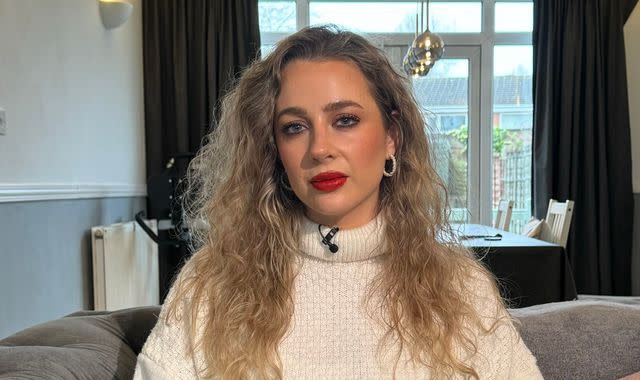'I thought I was going mad': Former make-up artist says she lost her job after being marked down by AI tool

A make-up artist says she lost her job at a leading brand after an AI recruitment tool using facial recognition technology marked her down for her body language.
It comes as new figures show the UK ranks second among countries using artificial intelligence (AI) in recruiting and human resources.
Anthea Mairoudhiou, a former MAC make-up artist, was laid off from her role in 2020 based on the results of a video interview conducted using HireVue - a US-based recruitment company that uses AI facial analysis technology to mark candidates.
Staff at the company were required to reapply for their jobs after being put on furlough, with the video interview comprising part of the assessment.
Ms Mairoudhiou scored full marks for her performance but lost her job because her body language was marked poorly in the HireVue interview.
HireVue removed the facial analysis function from all new assessments in early 2020 after a number of workers raised concerns.
Ms Mairoudhiou took legal action against Estee Lauder, the parent company of MAC Cosmetics, and agreed on a settlement out of court.
However, the experience had a lasting impact on her health.
"I just thought it was the end of the road of that career, a career that I've worked really hard in," she said.
"And, mentally it massively affected me. I felt very let down, and I thought I was going mad."
New figures show some 41% of companies use AI to "improve recruiting and human resources", according to a study of 20 countries in November last year, from the technology company IBM.
The UK ranked joint second with the United Arab Emirates, above the United States and below India, for the use of AI tools to support human resource needs like hiring, firing and training workers.
The survey covered five continents but excluded Africa.
Figures on the use of AI in work must be taken with a pinch of salt because different companies define the use of AI differently, but the overall trend is that companies are increasingly using AI for human resources, and the UK is one of the frontrunners in this space.
AI is used by companies to scan CVs and score candidates based on who it predicts is the best match, as well as to analyse candidates' body language and facial expressions in video interviews.
It comes amid a significant jump in the number of job applications last year on LinkedIn, the social network for careers. The number of LinkedIn applications per person surged by 23% in 2023 compared with the year before.
Software companies are also advertising AI tools that can check if an employee is at risk of resigning based on metrics like their pay and work history.
Read more:
Fake AI-generated Joe Biden robocall tells people not to vote
Revealed: How many jobs will be affected by AI
Robots made to help elderly patients pass testing phase
AI tools 'save companies a lot of money'
The author Hilke Schellman spoke to developers and whistleblowers at companies offering AI software for employers for her book The Algorithm.
"We have really seen very little evidence that the tools pick the most qualified candidates. But they save companies a lot of money," she said of her findings.
"We know that the tools are very cost-efficient. They save companies a lot of money in labour."
There are growing concerns workers in the UK do not know when these tools are being used on them and the Trades Union Congress (TUC) is calling for regulations to be put in place to protect them.
Robin Allen, a barrister at the Cloisters AI law consultancy, said: "The first step is to recognise that this requires regulation. It's not good enough to simply expect employers to work to ethical standards.
"When we have these technology systems in the workplace, there have to be people who are capable of saying, the computer's got it wrong."
HireVue and Estee Lauder, the parent company of MAC Cosmetics, were approached for comment.


